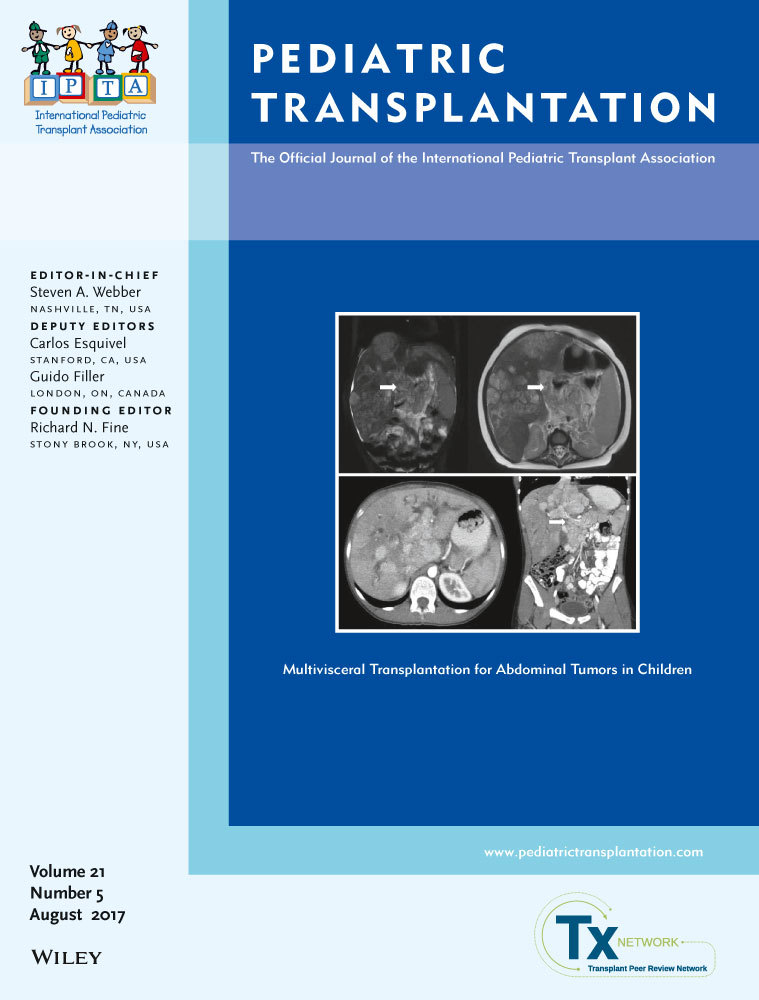Multivisceral transplantation for abdominal tumors in children: A single center experience and review of the literature
Abstract
Standard management of intra-abdominal pediatric solid tumors requires complete resection. However, tumors with multiple organ and vascular involvement present a unique surgical challenge. We conducted a retrospective chart review of four patients, aged 2-14 years, undergoing MVT for intra-abdominal tumors with significant involvement of the visceral arteries and/or portomesenteric venous system at our institution. Indications for MVT included hepatocellular carcinoma, inflammatory myofibroblastic tumor, and two cases of hepatoblastoma. Grafts included liver, stomach, small bowel, and pancreas in all patients, with two patients also receiving spleens, and one, a partial esophageal transplant. Median hospital stay was 80 days. Postoperative complications included reoperation for abdominal hematoma and bowel obstruction, steroid responsive intestinal rejection, wound dehiscence, fungemia, seizures, and chyle leak with pleural effusion. One patient developed Epstein-Barr virus-associated complications which responded well to treatment. On follow-up (range 2.8-7.8 years), all patients have satisfactory graft function and no evidence of recurrent disease. MVT is an effective means of achieving complete gross resection of intra-abdominal malignancies in patients with multiple organ and vascular involvement.




